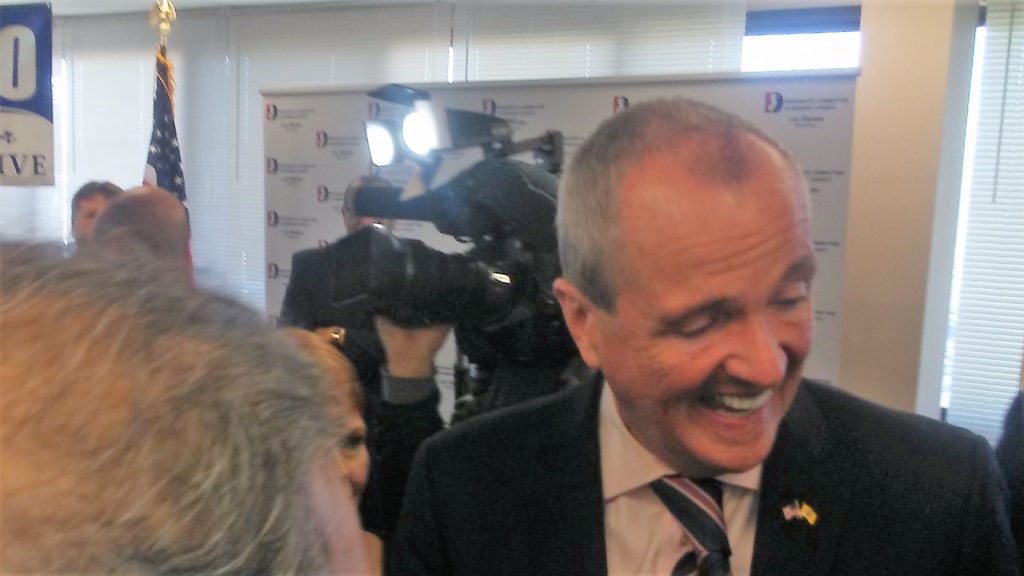Governor Murphy Announces Paul Aronsohn to Lead the Office of the Ombudsman for Individuals with Intellectual or Developmental Disabilities and Their Families

Governor Murphy Announces Paul Aronsohn to Lead the Office of the Ombudsman for Individuals with Intellectual or Developmental Disabilities and Their Families
“New Jersey remains committed to enhancing opportunities for individuals with disabilities,” said Governor Murphy. “With Paul’s leadership, I am confident that New Jersey will continue to protect the rights of people with disabilities and ensure every person has access to the American Dream.”
“I couldn’t be more excited about this opportunity,” said Aronsohn. “Working in and with the disability community has been a labor of love for me, and I am grateful to serve alongside Governor Murphy and his leadership team, who are all committed to giving people with disabilities and their families a seat at the policy-making table.”
Aronsohn brings to the table years of government experience, having worked for the administrations of President Bill Clinton and Gov. Jim McGreevey, including a stint with the U.S. State Department’s U.S. Mission to the United Nations. He also served 8 years on the Ridgewood Village Council, including 4 years as the town’s mayor. More recently, he served as a member of the Human and Children Services Committee for Governor-Elect Murphy’s Transition Team, which involved working with families and advocates of individuals with disabilities in order to cultivate recommendations for the incoming administration.
He is also a founding member of the Ridgewood Community Access Network and a board member of two other organizations that provide disability resources and advocacy -- Heightened Independence & Progress and the Adler Aphasia Center.
“Paul has been a long-time advocate for individuals with intellectual and developmental disabilities and their families, and we welcome his appointment to the Ombudsman role where he will continue this important work,” said Department of Human Services Commissioner Carole Johnson. “The Department is excited to have a strong partner in our efforts to improve the information and resources available to support individuals with intellectual and developmental disabilities.”
“New Jersey’s residents with developmental and intellectual disabilities are well-served when there are true advocates at the table,” said Department of Children and Families Commissioner Designate Christine Norbut Beyer. “Paul’s appointment to this important role demonstrates this Administration’s ongoing commitment to creating a more inclusive New Jersey. I look forward to working with him and his team to enhance access to services and strengthen supports for children with disabilities and their families.”
The Office of the Ombudsman, which is in, but not of, the Department of the Treasury, was created by law in January, granting the governor appointment authority.
As the ombudsman, Aronsohn will organize and direct the work of the office with duties that include:
- Serving as a source of information for individuals with intellectual or developmental disabilities and their families and interested members of the public, to help them better understand state and federal laws and regulations;
- Coordinating with the State Council on Developmental Disabilities, to provide information and support on navigating and understanding the process for obtaining services from the state Division of Children's System of Care and the Division of Developmental Disabilities, including information on transitioning between the two programs;
- Providing information and communication strategies to individuals with intellectual or developmental disabilities and their families for resolving disagreements with various state agencies, as well as education on the available options for resolving such disputes;
- Working with service recipients, families and the departments to facilitate the provision of services and supports;
- Identifying common concerns for individuals and their families, and making recommendations to the Division of Children's System of Care and the Division of Developmental Disabilities or the Department of Children and Families and the Department of Human Services; and
- To assist the Division of Children's System of Care and the Division of Developmental Disabilities in creating public information programs designed to inform individuals with intellectual or developmental disabilities, their families, and the public about the role of the ombudsman.
Under law, the ombudsman is also required to issue a written report annually to the commissioners of both the Department of Human Services and the Department of Children and Families, as well as the governor and the legislature.





